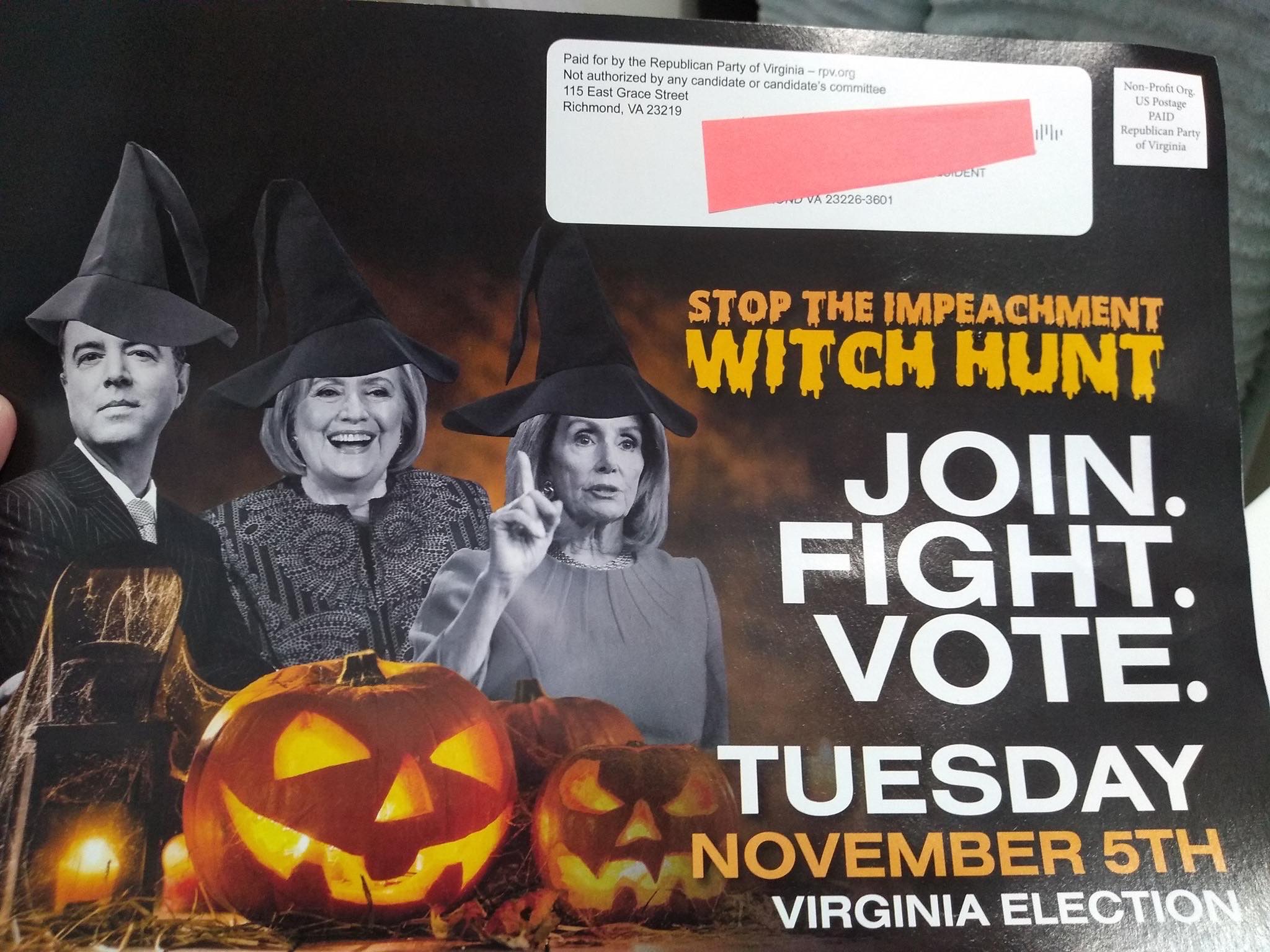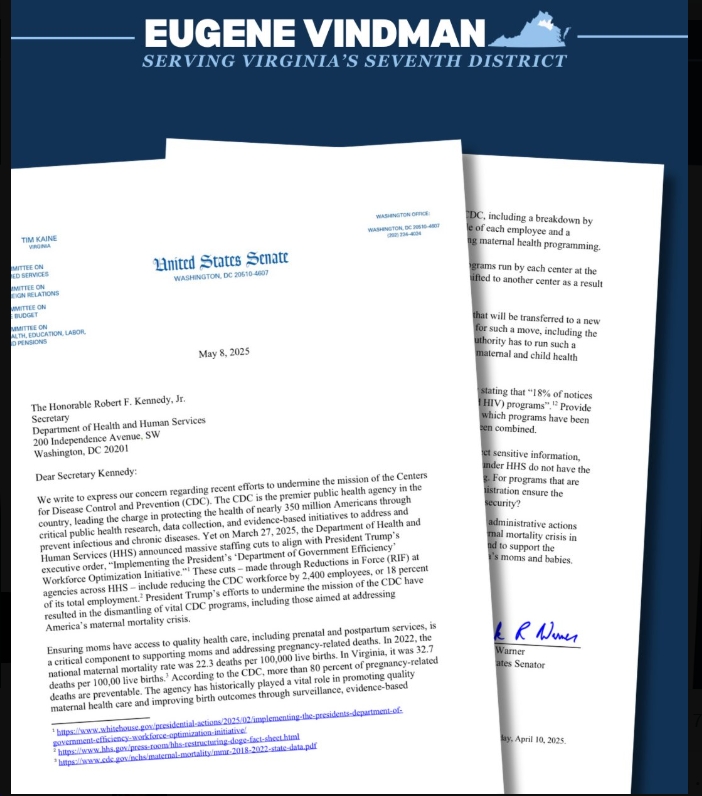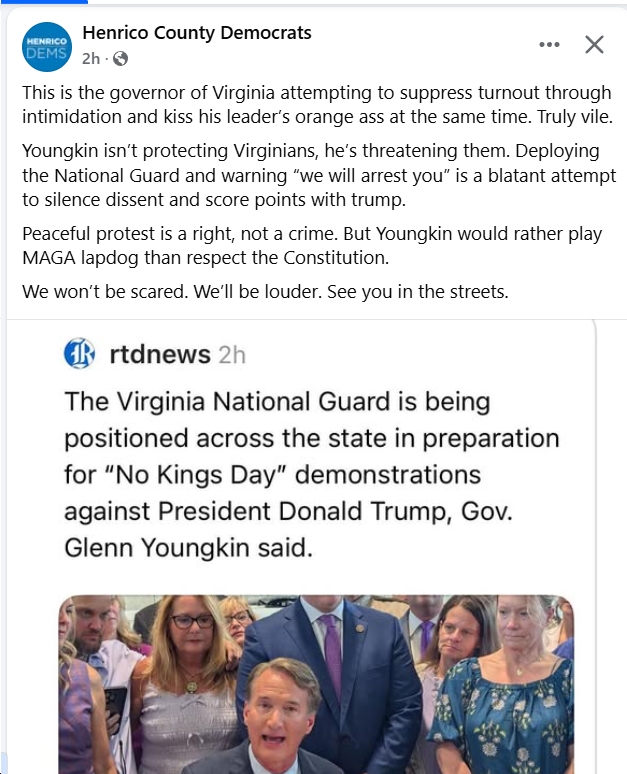This piece will be running this week in newspapers in my very conservative congressional District (VA-06).
*******************
Where I Went Wrong
In the fall of 2015, I made two predictions: 1) that Donald Trump was going to win the Republican nomination, and 2) that if he did, he would lose badly in the general election.
Of course, on the second one, I was mistaken.
As someone for whom getting the truth right is a lifelong priority, I have thought it important to figure out how I got that one wrong. Here’s the best answer I’ve come up with.
When I made that prediction, no more than 40% of the Republican electorate were Trump supporters, while nearly 60% told pollsters they had an “unfavorable” opinion of Trump.
It was about that 60%, I believe, that I made my mistake: I assumed that those Republican voters disapproved of Trump in the same way as did I and many of the people I know: Namely, that – party aside, and regardless of positions on the issues – Trump was so clearly the wrong sort of person to be President that he must be rejected, no matter what party ticket he headed.
That assumption, clearly, was wrong. It is clear that whatever the nature of their “unfavorable” opinion, it was not such a categorical revulsion, because when Trump became the Republican nominee, almost all Republican voters rallied to his support.
To explain that, some people have stressed the “at least he’s not Hillary” factor. But that explanation doesn’t work. Although a super-negative view of Hillary might explain some people voting for Trump last November, despite disapproving of him, it cannot explain their continuing of him, as the great majority of Republicans still do.
People who voted for Trump as the “less unacceptable” choice would have been free since that election to be repelled by Trump’s performance as President. But only a relative few have withdrawn their support.
Clearly, therefore, that earlier “unfavorable” opinion of Trump didn’t mean what I thought it did. And we see from all the polls that the great majority of Republicans have had no great difficulty looking at Trump and seeing something they like.
This is where I went wrong back in the fall of 2015. And this is what puzzles me still.
Approving, for Example, an Insistence on Conflict?
Puzzled, for example, by how the Republican base can apparently approve one salient aspect of Trump’s character: what I call his “insistence on conflict.”
Soon after he was inaugurated, commentators expressed surprise that Trump did virtually none of what new presidents almost invariably do: reach out beyond the base of supporters to try to bring Americans of all stripes around to supporting him as their president.
Presidents try to build their support, not just because uniting the country is considered a virtue but also because it is politically smart: The greater a president’s popular support, the more able that president will be to accomplish his goals. Which is why commentators thought Trump’s approach — continually stoking his base while alienating the rest — an odd political strategy.
That impulse is illustrated by Trump’s speech at his recent rally in Phoenix. As on those few other occasions that Trump has called for American unity, so also in Phoenix: those were words written by staff and read by Trump off the teleprompter.
As soon as he went off script, however, Trump went straight into division and conflict– warring first on the press, then on Arizona’s two Republican senators, and then to preview an extremely divisive pardon for a convicted sheriff who refused to stop his racist practices when so ordered by a federal court.
Trump’s escalating war against the Republicans in Congress has also caused commentators to marvel. It makes no political sense, the commentators say, to publicly fight with leaders like Senator McConnell – the very people Trump will need to get any of his agenda accomplished.
But Trump’s picking fights seems less a “political strategy” for accomplishing an agenda than a requirement dictated by his character.
His whole orientation is to engage in conflict across divisions he fosters. He seems to need to be embattled, pitting himself (and his followers) against everyone else — declaring the majority of the American press the “enemy of the people,” taking shots against the independent judiciary and the rule of law, and fanning the flames of racial and ethnic conflict, calling out anyone who crosses him, including fellow Republicans.
Leading a unified country would seem to be outside of Trump’s behavioral repertoire.
Trump has demonstrated an insistence on division and conflict not only in the domestic arena, but internationally as well.
Since World War II, every American president automatically has stepped into the role of “the leader of the free world.” But not Trump.
Trump quickly set about disabusing the world of the notion that he wanted to lead a unified west– berating the Australian leader; repeatedly dissing Angela Merkel of Germany; withdrawing from the Paris Accords; withholding the expected American commitment to defend our NATO allies; literally pushing another NATO head of state out of his way; and demonstrating, in front of our traditional friends, his preference for Russia’s Putin.
Thus antagonized by Trump’s conduct, our long-standing allies have conveyed their realization that, with Trump as President, they are – like never before – on their own.
I imagine I understand, in a general way, the psychology that makes him so insistent on division and conflict.
But it remains a puzzle to me that so many regular Republicans – many of whom, in their private lives, are neighborly, agreeable people – can lend their support to such an insistence on animosity and disharmony.
And I wonder: How did so many decent people come to get such gratification from this drama – of chronic conflict against enemies – that they’d approve of its continual enactment even at the cost of this president’s accomplishing anything to improve their lives?

















